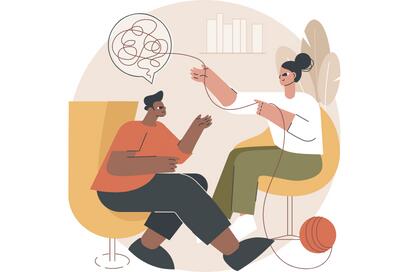How to become a psychotherapist
Are you looking to qualify as a psychotherapist?
TA 101 Workshop Certificate in Transactional Analysis Theory and Practice Open DaysHow to become a psychotherapist.
The main professional body for psychotherapists in this country is the UK Council for Psychotherapy (UKCP). They set out Standards of Education and Training for the psychotherapy training courses that they Accredit. These psychotherapy courses are all at least 4 years long, and at Postgraduate level (these are requirements of the UKCP).
At the Iron Mill, we run a Transactional Analysis (TA) Psychotherapy course. This course meets the requirements of the UKCP, and of our International TA organisations, for qualification as a psychotherapist. The course is in two parts: the first, Foundation, year, and then the three-year Advanced course.
What is TA Psychotherapy?
Transactional analysis is an integrative psychotherapy with a wealth and depth of theory on personality, communication and human development.
TA psychotherapy aims to allow clients to change in profound ways, to improve their lives, their relational patterns and ways of being in the world. It allows the psychotherapist and client to work at depth, in the long term, with complex psychological problems, including serious mental illnesses.
TA has models that provide structure, and can describe and shed light on important conscious and non-conscious processes. The theory can be used for reflection and to provide direction for the work.
TA is an integrative modality, with a depth of theory that has been developed over 60 years and continues to evolve. Because of this, the theoretical concepts link well together and inform thinking about each other and clinical practice. It is an extremely robust theory that allows the psychotherapist to remain grounded, even when working with very complex problems.
Step 1. The best way to find out about our TA psychotherapy course is to attend a TA101.
This two-day introductory course covers key aspects of TA theory. It is an essential ‘taster’, not only for TA theory and the way we work with that theory in the College TA courses, but also our approach to education on those courses.
Step 2. Apply to the Certificate in Transactional Analysis Theory and Practice course.
We have regular interview dates for the Certificate course. At interview, you will meet other prospective students, have a chance to discuss the course and ask questions of the TA staff team members. After the group discussion, everyone will meet with TA staff team members for an individual interview. Although the word ‘interview’ may sound intimidating, these are a dialogue between the prospective students and tutors, to discuss your strengths, challenges and thoughts about the course.
Step 3. Complete the Certificate course
This foundation course runs from November to July each year, over 9 weekends, one each month. During that time, students learn a great depth of key TA theories, complete two written assignments, and present some of their thinking about a TA concept they have chosen at the end of the year. Students also start in personal therapy. The structure of that year also provides an opportunity to develop reflective practice and skills for working with others. Students are given feedback on their counselling skills and specific areas for development, as to progress to the Advanced TA psychotherapy course, students need to be ready to start to see clients in placement.
Step 4. Complete the Advanced TA psychotherapy course.
This course runs from September to July, over 10 weekends. There are three years of the course, with a different curriculum each year. Groups are generally multi-level, that is, each training group can contain students in each year of their Advanced training, who learn from each other as part of the formal teaching process. In the first year of the Advanced course, students start seeing clients in placement, so they also start attending supervision of that client's work. That clinical work continues throughout the Advanced course, and students may start to undertake some private client work once they have sufficient clinical experience. During each year, students complete three written assignments and give a presentation at the end of the year on their reflective practice in their client work during that year. Students also continue in personal therapy throughout training.
Step 5. Complete the qualification process.
The final process for qualification is run by the national and international TA professional bodies, not the college. Students usually complete this process, with the support of their supervisor, peers and tutors, after the end of the 4-year training. The qualification process consists of gaining the required number of hours of supervised clinical practice, completing a ‘dissertation’ or ‘written exam’ as it is known within the TA training, then completing a viva examination in which they discuss their work. Completion of that qualification process leads to UKCP Registration.


.png?1708613430313)

